In the fast-paced contemporary digital environment, digital marketing has significantly contributed to modern b2c branding strategies. With increasing consumer time spent online, business companies need to adapt to branding efforts to catch them in their natural habitats. This essay explores how digital marketing has transformed the way companies approach b2c branding, discussing key strategies, challenges, and opportunities in this dynamic field.
Evolution of B2C Branding in the Digital Era
Traditional branding techniques have evolved significantly with the rise of digital technologies. B2c branding strategies are no longer confined to the traditional methods of advertising; rather, they have evolved to cover the extensive list of digital touchpoints and interactions. It has resulted in a holistic approach to brand building wherein consistency across all digital channels is of utmost importance.
Components of Modern B2C Branding Strategies
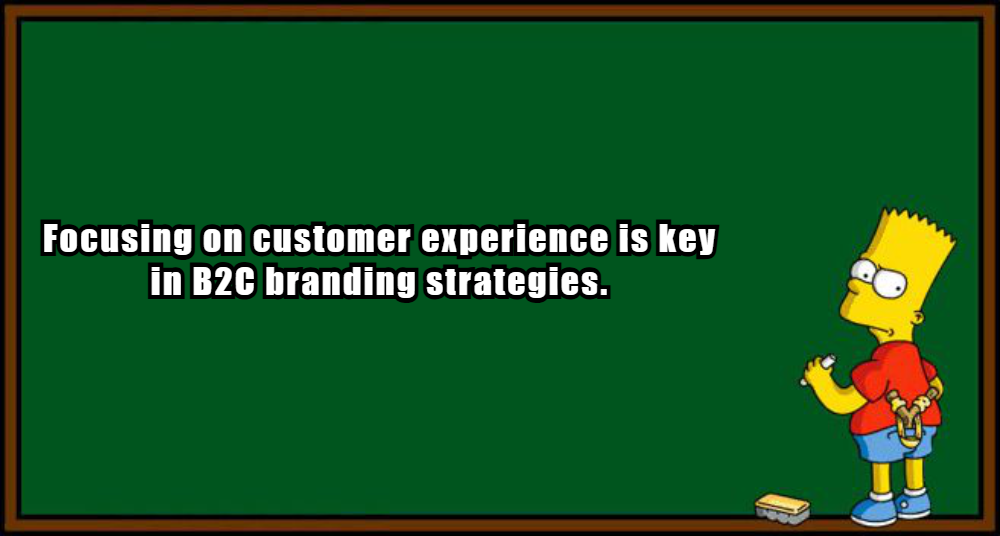
Digital Presence: Today, the basis of b2c branding strategies is an online presence. This includes:
- A user-friendly, mobile-responsive website
- Active social media profiles
- Engaging contents on other digital platforms
Content Marketing: Valuable and relevant content related to customer needs and preferences that customers respond well to helps build brand authority and customer relations.
Social Media Engagement: Brand can directly engage with consumers, and therefore, the brand humanizes and creates a community on Facebook, Instagram, and Twitter.
Search Engine Optimization: Ensuring online content is optimized for search engines so brands can be found when in demand by the consumer of similar products or services.
Personalization: Using data and technology to deliver highly individualized experiences to customers to increase brand relevance and loyalty.
Influencer Partnerships: Collaborating with influencers can extend brand reach and credibility among specific target demographics.
The Impact of Digital Marketing on B2C Branding
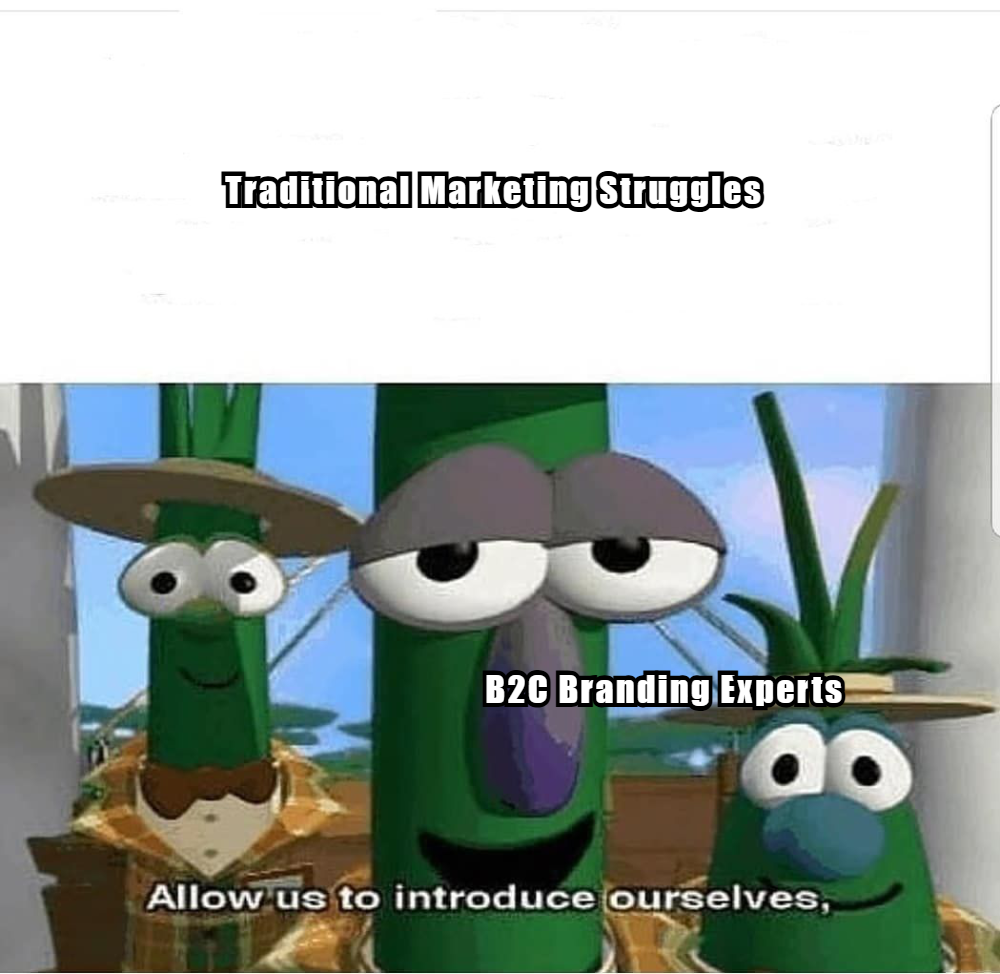
Digital marketing has revolutionized b2c branding strategies by providing unprecedented opportunities for targeting, engagement, and measurement. Here’s how:
Enhanced Targeting and Personalization
Modern digital marketing tools help a brand be very segmented in its audience for pretty selective messaging, something that never was achievable with traditional marketing methods. It allowed delivering content to specific groups of consumers; hence, it was easier to create deeper connections with consumers and enhance the effectiveness of a brand’s overall branding efforts.
Real-Time Engagement and Feedback
Social media, among other digital means, has opened up two-way channels of communication between brands and consumers. Real-time interaction through social media allows brands to:
- Quickly respond to customer inquiries and concerns
- Reach immediate feedback about products and campaigns
- Change messaging and strategy on a whim
Data-Driven Decision Making
One of the most important advantages of digital marketing in b2c branding strategies is the wealth of data it provides. Brands can now track and analyze consumer behavior, campaign performance, and ROI with unprecedented detail. This data-driven approach allows for continuous optimization of branding efforts, ensuring that resources are allocated to the most effective channels and strategies.
Expanded Reach and Global Accessibility
Digital marketing has leveled the geographical boundaries, enabling brands to reach the global masses relatively with ease. The expanded outreach leads to new markets and opportunities but poses a challenge in terms of considering cultural nuances and localization for branding.
Important Digital Marketing Strategies for B2C Branding
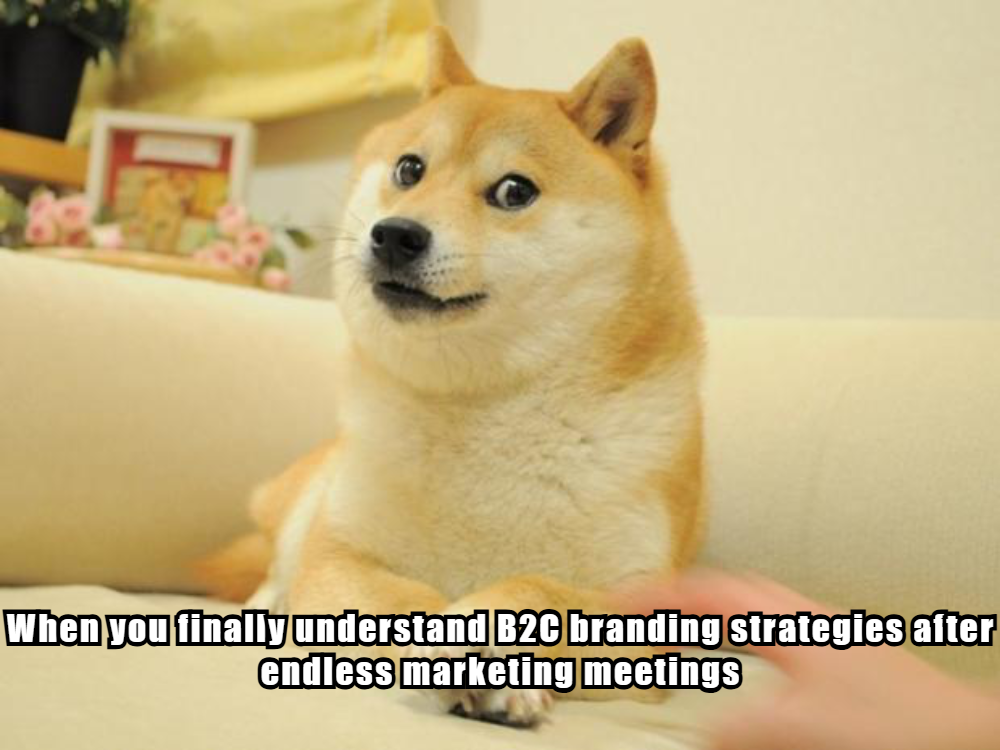
In order to make the best use of digital marketing for b2c branding, companies need to consider the following:
Content Marketing and Storytelling
What underlies successful b2c branding is creating compelling, shareable content that would make the audience connect emotionally with the brand, resulting in brand loyalty. Authentic stories told by brands can connect to their audience. This content may be presented as:
- Blog posts and articles
- Videos and podcasts
- Infographics and visual content
- User-generated content
Social Media Marketing
Social media channels create an opportunity for brands to be personal with consumers. Successful b2c branding through social media channels:
- Consistent brand voice and message across all channels
- Regular posting of engaging content
- Customer comments and questions are answered immediately
- Utilize features native to the channel (for example, Instagram Stories and Twitter polls)
Influencer Marketing
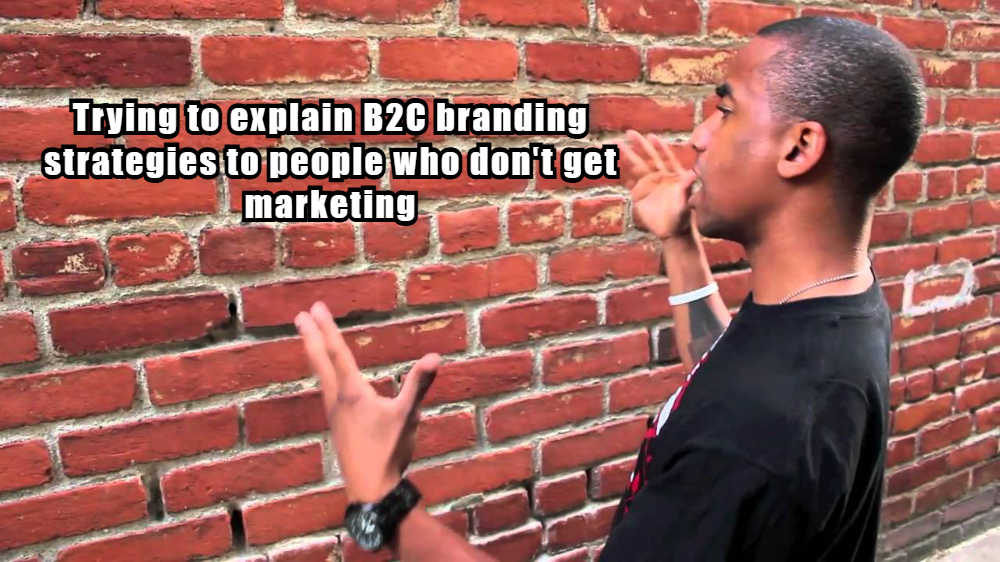
Brand awareness and credibility can increase rapidly when partnering with influencers. Brands should consider the following when choosing influencers:
- Aligns with brand values
- Aligns with the target audience
- Authenticity and engagement rates
- Expertise in the platform and quality of content
SEO
Optimizing content online is a must to improve the visibility of the brand. Key SEO strategies are:
- Keyword research and optimization
- Quality content creation
- Technical SEO like the speed of the website, mobile-friendliness, etc.
- Link building and local SEO
Email Marketing
Though new digital channels have emerged, email is a powerful tool for b2c branding. Effective email marketing strategies are:
- Personalized content and offers
- Segmentation based on customer behavior and preferences
- A/B testing of subject lines and content
- Mobile-friendly design
Challenges and Opportunities in Digital B2C Branding
Digital marketing has several benefits for branding strategies in b2c, but it also introduces some specific challenges:
Challenges
- Information Overload: With the sheer volume of digital content available, brands must work harder to cut through the noise and capture consumer attention.
- Privacy Concerns: Increasing awareness of data privacy issues requires brands to be transparent about their data collection and usage practices.
- Rapid Technological Changes: The fast-paced evolution of digital technologies demands constant adaptation and learning.
- Maintaining Consistency: Ensuring a consistent brand message across multiple digital channels can be challenging.
Opportunities
- Hyper-Personalization: Advanced data analytics and AI technologies enable brands to deliver highly personalized experiences at scale.
- Augmented and Virtual Reality: These technologies offer new ways for brands to engage consumers and create immersive brand experiences.
- Voice Search Optimization: As voice-activated devices become more prevalent, optimizing for voice search presents new branding opportunities.
- Blockchain for Brand Transparency: Blockchain technology can help brands demonstrate authenticity and build trust with consumers.
Measuring Digital B2C Branding Strategy’s Success
Companies must identify clear metrics and KPIs to ensure that their digital branding efforts are working. Some key metrics include:
Metric |
Description |
| Brand Awareness | Measures the familiarity and recognition of your brand among your target audience |
| Engagement Rate | Tracks how actively your audience interacts with your brand content |
| Conversion Rate | Measures the percentage of users who take a desired action (e.g., making a purchase) |
| Customer Lifetime Value | Calculates the total value a customer brings to your brand over their entire relationship |
| Net Promoter Score | Gauges customer loyalty and likelihood of recommending your brand |
Regular analysis of these metrics will allow brands to refine their b2c branding strategies and optimize their digital marketing efforts for maximum impact.
The Future of Digital Marketing in B2C Branding
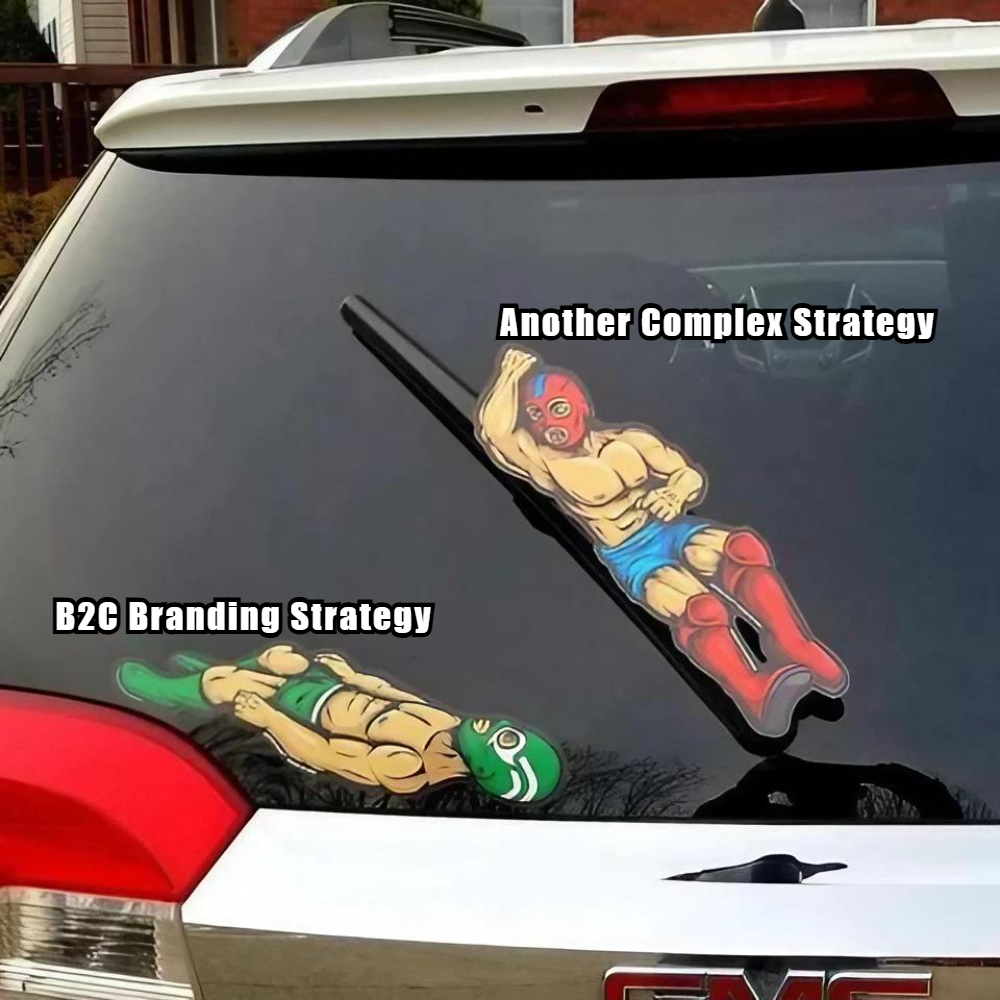
The role of digital marketing in b2c branding will only continue to grow in importance as technology continues to evolve. Some trends to watch include:
- Artificial Intelligence and Machine Learning: These technologies will enable even more sophisticated personalization and predictive analytics.
- Internet of Things (IoT): Connected devices will provide touchpoints for brand interactions and data.
- 5G Technology: Fast internet; immersive and interactive experiences with more speed.
- Sustainability and Social Responsibility: Communicating what brands stand for and their relationship to these important values.
Conclusion
Without a doubt, digital marketing is one of the transformative roles in current b2c branding strategies. By tapping into the advantages offered by digital technologies, more personal, engaging, and measurable branding experiences become achievable for brands. Authenticity is the key to winning here, though an appreciation for digital marketing principles; besides the fast-evolving consumer behavior and technology changes.
As we look forward into the future, we can see that digital marketing will be at the center of b2c branding efforts. Brands that can implement these digital strategies with agility will be in the best position to build connections in the increasingly digital world.
FAQs
1. How has b2c branding strategy changed due to digital marketing?
Digital marketing has transformed b2c branding by enabling more targeted, personalized, and measurable brand interactions across various online channels.
2. What are the key components of a successful digital b2c branding strategy?
Successful strategies typically include a strong digital presence, content marketing, social media engagement, SEO, personalization, and influencer partnerships.
3. How can brands measure the success of their digital branding efforts?
Key metrics include brand awareness, engagement rates, conversion rates, customer lifetime value, and net promoter scores.
4. What are the challenges brands face in digital b2c branding?
Common challenges include information overload, privacy concerns, rapid technological changes, and maintaining consistency across multiple channels.
5. What are the future trends that will influence digital b2c branding strategies?
Emerging trends include AI and machine learning, IoT, 5G technology, and an increased focus on sustainability and social responsibility in branding communications.

